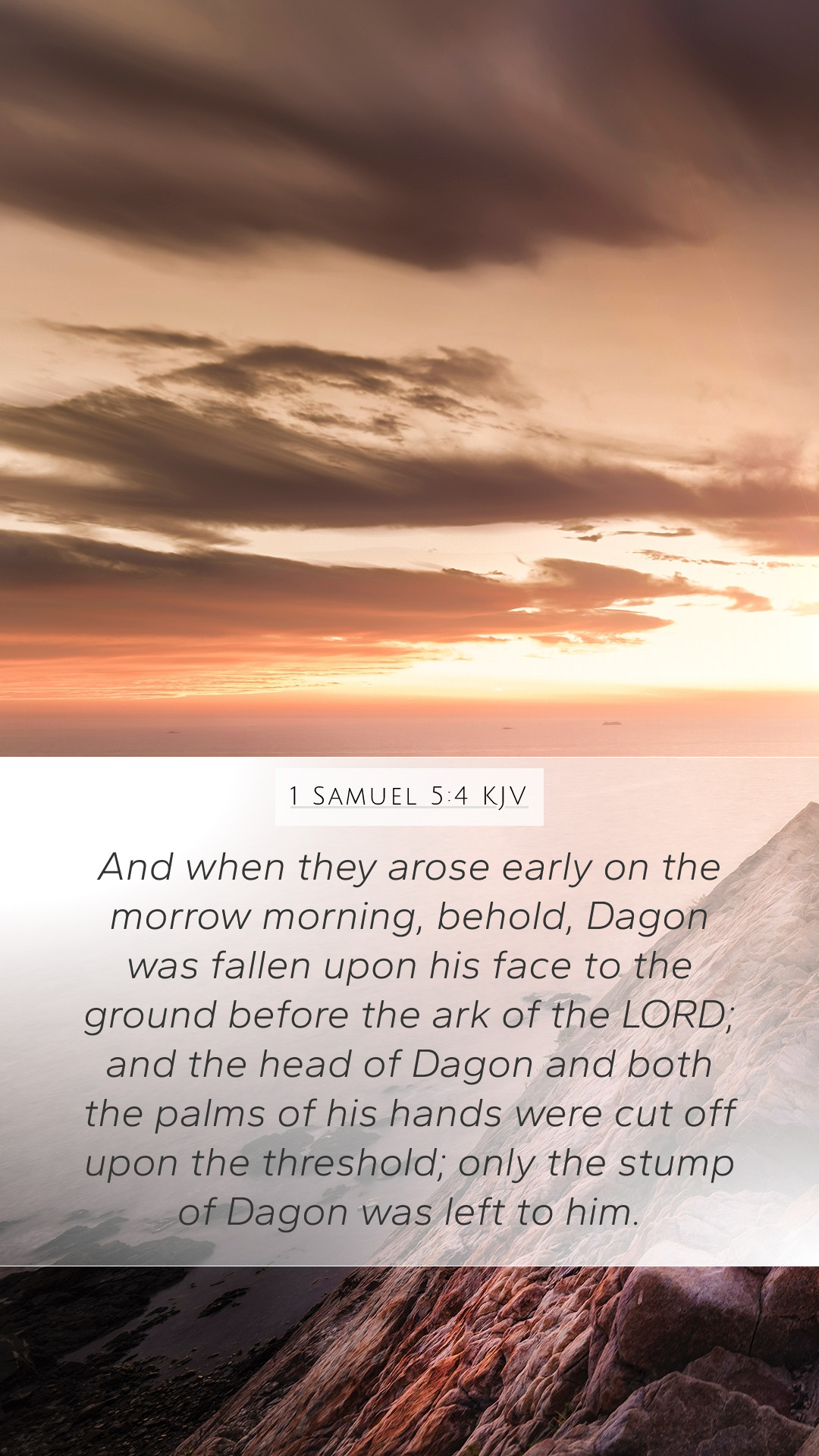Understanding 1 Samuel 5:4
Bible Verse: 1 Samuel 5:4 - "But when they rose early the next morning, behold, Dagon had fallen face downward on the ground before the ark of the LORD. So they took Dagon and put him back in his place."
This verse depicts the power of God in contrast to the impotence of idols, particularly Dagon, the Philistine god. The account highlights God's sovereignty over false gods.
Bible Verse Meanings and Interpretations
The significance of this verse can be explored through the lenses of various public domain commentaries:
- Matthew Henry:
- Henry emphasizes the humiliation of Dagon, illustrating that even false gods are subject to the true God. The act of falling suggests a divine message that the idols have no power or place before the God of Israel.
- Albert Barnes:
- Barnes notes that the incident serves as a clear demonstration of God's supremacy. The attempt to restore Dagon only highlights human efforts to uphold what God has clearly overthrown.
- Adam Clarke:
- Clarke provides insight into the cultural significance of the idol Dagon, mentioning how the Philistines might have viewed this event as a political statement against Israel’s God. His commentary reflects on the implications of idol worship and its ultimate futility.
Scripture Analysis and Biblical Exegesis
1 Samuel 5:4 serves as a pivotal moment illustrating the dynamic between Israel and the Philistines, as well as between the living God and man-made deities. The narrative emphasizes:
- The Fragility of Idols: Dagon's fall symbolizes the impermanence of human belief systems that oppose God.
- God's Sovereignty: The verse conveys the message that God controls not only the affairs of men but also the realm of spiritual beings.
- Human Response to Divine Revelation: The Philistines' actions of placing Dagon back in position reflect the human tendency to ignore clear signs of divine authority.
Bible Study Insights
In engaging with this verse during Bible study groups or personal reflection, consider the following insights:
- Reflect on personal idols that may compete for attention and worship in life.
- Discuss the cultural relevance of God's actions in the Old Testament and compare them with our understanding of God today.
- Utilize this verse to explore broader themes of God's power versus human limitation in other scripture passages.
Examples of Application
As you consider this verse, think about how its themes can be applied to daily life:
- Identifying what modern idols may exist in your life and addressing them through prayer and action.
- Encouraging resilience in faith when facing challenges that seem to threaten belief in God's sovereignty.
Additional Bible Cross References
This verse can be related to other passages that underscore similar themes:
- Exodus 12:12: God’s judgment against the gods of Egypt.
- Psalms 115:4-8: A declaration regarding the nature of idols.
- Isaiah 46:1-2: A prophecy highlighting the futility of idol worship.
Conclusion
1 Samuel 5:4 serves as a profound scriptural moment showcasing the ultimate power and sovereignty of God against human representations of divinity. As you study this verse, consider the implications and applications for your own faith journey.


